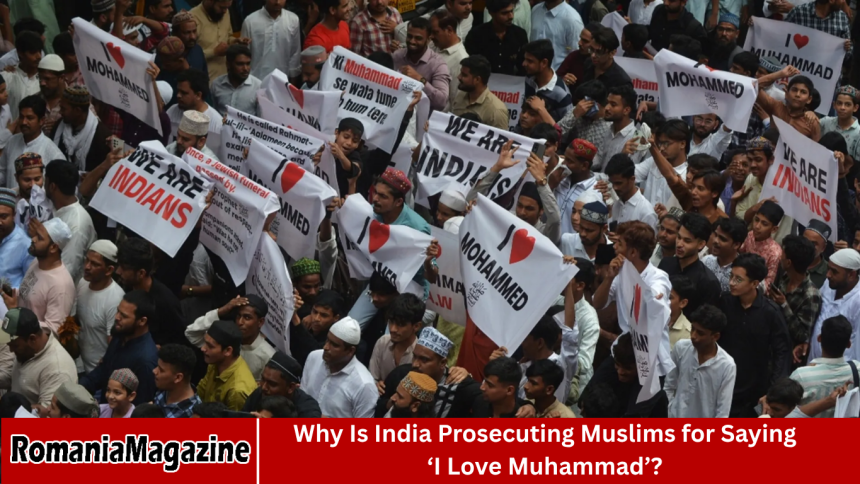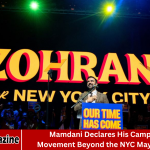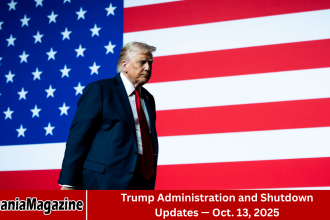In recent months, a wave of controversy has swept across India following the arrest and prosecution of Muslims for publicly expressing the phrase “I love Muhammad.” The issue, which began as isolated incidents in a few states, has now become a nationwide debate on freedom of expression, religious identity.
- A Phrase Turned into a Political Flashpoint
- The Legal Context: IPC Sections and Misuse
- Selective Policing and the Double Standard Debate
- A Broader Pattern of Criminalizing Muslim Expression
- Political Exploitation and Communal Polarization
- Voices of Protest and Solidarity
- International Reaction and Human Rights Concerns
- The Role of Social Media and Misinformation
- Constitutional and Ethical Implications
- The Chilling Effect on Religious Freedom
- Frequently Asked Question
- What is the meaning of “I love Muhammad”?
- Why are Muslims being prosecuted for saying it in India?
- Under what laws are these prosecutions being filed?
- Are similar actions taken against Hindu religious slogans?
- What has been the response from the Muslim community?
- How has the international community responded?
- What does this mean for India’s secularism and democracy?
- Conclusion
Videos of Muslims—many of them young men—chanting “Naara-e-Takbeer, Allahu Akbar!” and “I love Muhammad” during peaceful gatherings or religious events have gone viral on social media.
In response, police in several Indian states, including Uttar Pradesh, Madhya Pradesh, and Gujarat, have filed cases under various sections of the Indian Penal Code (IPC), often citing charges such as promoting enmity, disturbing public order, or “hurting religious sentiments.”
More Read: Mamdani Declares His Campaign a Movement Beyond the NYC Mayor’s Race
A Phrase Turned into a Political Flashpoint
The phrase “I love Muhammad” (Urdu: Main Muhammad se mohabbat karta hoon) is not new. It has been used for centuries by Muslims worldwide as an expression of devotion to the Prophet Muhammad (peace be upon him).
However, in India’s increasingly polarized environment, the phrase has taken on new political connotations. In 2024 and 2025, several incidents occurred where Muslim processions, particularly during Eid Milad-un-Nabi—the Prophet’s birthday—used the slogan “I love Muhammad” while marching through streets.
What was once a joyous religious celebration suddenly turned into a police matter. Authorities in some BJP-ruled states argued that the slogans were “provocative” and “potentially inflammatory” when uttered in mixed communities.
For many observers, this represents a troubling trend: the transformation of ordinary Islamic expressions into alleged acts of defiance or sedition.
The Legal Context: IPC Sections and Misuse
The prosecutions often invoke sections of the Indian Penal Code such as:
- Section 153A – Promoting enmity between different groups on grounds of religion.
- Section 295A – Deliberate and malicious acts intended to outrage religious feelings.
- Section 505(2) – Statements creating or promoting enmity or hatred between communities.
While these laws were originally designed to maintain communal harmony, their use in cases involving Muslims saying “I love Muhammad” appears to stretch the law’s intent.
Legal experts point out that none of these sections should apply to expressions of personal faith unless there is clear evidence of incitement to violence or hatred. “Simply saying ‘I love Muhammad’ cannot be considered an act of provocation,” says senior advocate Faizan Mustafa, a noted constitutional expert.
“These laws are being misapplied in a way that criminalizes religious identity itself.”
Selective Policing and the Double Standard Debate
Critics argue that the Indian authorities’ response reflects a double standard. Hindu religious slogans—such as “Jai Shri Ram” or “Har Har Mahadev”—are routinely used in political rallies, processions, and even during confrontations without facing similar legal scrutiny.
In fact, these slogans are often normalized as expressions of cultural pride. In contrast, Muslim expressions of faith are frequently policed, labeled as “communal,” and sometimes punished. This uneven treatment has deepened perceptions of discrimination and alienation among Indian Muslims.
Journalist Rana Ayyub wrote, “The phrase ‘I love Muhammad’ is being punished not because it threatens peace but because it represents Muslim assertion in a climate where even peaceful Muslim visibility is viewed as provocative.”
The issue thus goes beyond the slogan itself—it speaks to how Muslim identity is framed as inherently suspicious in contemporary India.
A Broader Pattern of Criminalizing Muslim Expression
The controversy over “I love Muhammad” is not an isolated event. It is part of a larger pattern in recent years where Muslim expression—religious, cultural, or political—has been increasingly restricted or stigmatized.
Examples include:
- Hijab bans in schools and colleges in Karnataka, where Muslim girls were prevented from wearing headscarves.
- Demolition drives targeting Muslim-owned homes and shops after communal clashes.
- Criminal cases against Friday prayers conducted in open spaces.
- Arrests over social media posts perceived as “pro-Palestine” or “anti-government.”
Each of these cases reflects how public expressions of Muslim identity are treated as potential threats to public order.
Sociologists describe this as part of a broader effort to “discipline” religious minorities by limiting their visibility and voice in the public sphere.
Political Exploitation and Communal Polarization
The issue also cannot be divorced from electoral politics. As India moves closer to the 2026 general elections, religion-based polarization remains a powerful tool for mobilizing voters.
The Bharatiya Janata Party (BJP), which espouses Hindu nationalist ideology, has often been accused of using communal tensions to consolidate its Hindu vote base. While the party denies such allegations, its rhetoric frequently centers around “appeasing the majority” and portraying Muslims as the “other.”
Analysts note that crackdowns on Muslim gatherings or religious slogans serve a dual purpose:
- Appeasing hardline Hindu groups that view public displays of Islamic faith as provocative, and
- Projecting the government as a guardian of “law and order” against “communal disturbance.”
This dynamic makes the simple act of saying “I love Muhammad” a politically charged statement, even if the intent behind it is purely devotional.
Voices of Protest and Solidarity
In response to these prosecutions, several Muslim organizations, human rights groups, and civil society members have spoken out. The All India Muslim Personal Law Board called the arrests “a gross misuse of law” and “an attempt to suppress religious freedom.”
Large protests have also erupted in parts of India, with thousands of Muslims marching peacefully while holding placards saying “We Love Muhammad – Arrest Us Too.”
This mass response reflects growing frustration within the community but also an assertion of dignity and faith in the face of persecution.
Meanwhile, Hindu leaders such as Swami Agnivesh (before his passing) and activists from secular groups have defended the Muslims’ right to express their faith. “If loving one’s prophet is a crime, then loving Lord Ram or Krishna should be too,” said a Delhi-based activist, highlighting the hypocrisy in enforcement.
International Reaction and Human Rights Concerns
The international community has begun to take notice. Organizations like Amnesty International and Human Rights Watch have criticized India’s actions as part of a “wider assault on religious freedom.”
The U.S. Commission on International Religious Freedom (USCIRF) has listed India among countries of concern, citing “systematic discrimination and criminalization of Muslim identity.”
Even within India, prominent voices from the judiciary and academia have warned that the government’s handling of such cases erodes the secular character of the Indian Constitution, which guarantees freedom of religion under Article 25.
India’s foreign ministry has dismissed these criticisms as “biased and politically motivated,” but the damage to its image as a pluralistic democracy continues to grow.
The Role of Social Media and Misinformation
Social media platforms have played a major role in amplifying tensions. In many of the incidents that led to arrests, misleading or selectively edited videos were circulated, portraying Muslim processions as aggressive or “anti-Hindu.” These videos often went viral before fact-checkers could debunk them.
Platforms like X (formerly Twitter) and WhatsApp groups have become battlegrounds where misinformation spreads rapidly, further inflaming communal sentiment. Digital experts argue that the state’s failure to regulate hate speech consistently has allowed extremist voices to dominate the narrative.
In contrast, Muslim voices defending their faith are quickly labeled as “radical” or “anti-national,” which further normalizes prejudice.
Constitutional and Ethical Implications
At its core, the prosecution of Muslims for saying “I love Muhammad” raises fundamental questions about India’s secularism, democracy, and constitutional morality.
Article 19 of the Indian Constitution guarantees freedom of speech and expression, while Article 25 ensures freedom of religion and the right to practice, profess, and propagate faith. If saying “I love Muhammad” is considered a crime, then these constitutional guarantees are effectively meaningless.
Ethically, it also challenges India’s long history of religious coexistence. For centuries, Hindus and Muslims shared cultural spaces, festivals, and poetry that celebrated divine love and devotion. Turning such expressions into “threats” undermines the very fabric of India’s pluralism.
The Chilling Effect on Religious Freedom
Beyond the arrests and court cases, these incidents have created a chilling effect within Muslim communities. Many now fear public displays of faith, unsure whether a chant or slogan might lead to arrest.
This self-censorship represents an invisible yet profound loss — not only for Muslims but for Indian democracy itself.
A young student in Bhopal put it poignantly:
“We are taught that India is a free country where we can pray and express love for our Prophet. But now, it feels like we must hide our beliefs to stay safe.” Such sentiments highlight the psychological and emotional toll that these prosecutions are taking.
Frequently Asked Question
What is the meaning of “I love Muhammad”?
It is a phrase expressing love and devotion toward Prophet Muhammad (peace be upon him), used by Muslims around the world. It’s a spiritual statement, not a political one.
Why are Muslims being prosecuted for saying it in India?
Authorities in some states claim such slogans can provoke communal tension. However, critics argue that these prosecutions are politically motivated and discriminatory, targeting Muslims for simply expressing faith.
Under what laws are these prosecutions being filed?
Cases are often registered under IPC Sections 153A (promoting enmity), 295A (hurting religious sentiments), and 505(2) (inciting hatred). Legal experts say these laws are being misused.
Are similar actions taken against Hindu religious slogans?
Generally, no. Slogans like “Jai Shri Ram” are widely used and even encouraged in political and social contexts, revealing a double standard in law enforcement.
What has been the response from the Muslim community?
Muslims across India have protested peacefully, chanting “We Love Muhammad – Arrest Us Too.” Many view these arrests as an attack on their identity and faith.
How has the international community responded?
Global human rights organizations and religious freedom advocates have condemned India’s actions, urging respect for constitutional rights and minority protections.
What does this mean for India’s secularism and democracy?
These incidents highlight growing threats to India’s secular and pluralistic ethos. If faith expressions become criminalized, it could mark a dangerous erosion of constitutional freedoms.
Conclusion
The prosecution of Muslims for saying “I love Muhammad” is more than a legal or religious issue—it is a test of India’s democratic values.
It reflects the deep fault lines between law and justice, between identity and citizenship, and between devotion and dissent.
When the act of expressing love for one’s prophet becomes criminalized, it raises an unsettling question: What does freedom of religion truly mean in modern India? As the debate continues, India stands at a crossroads.










